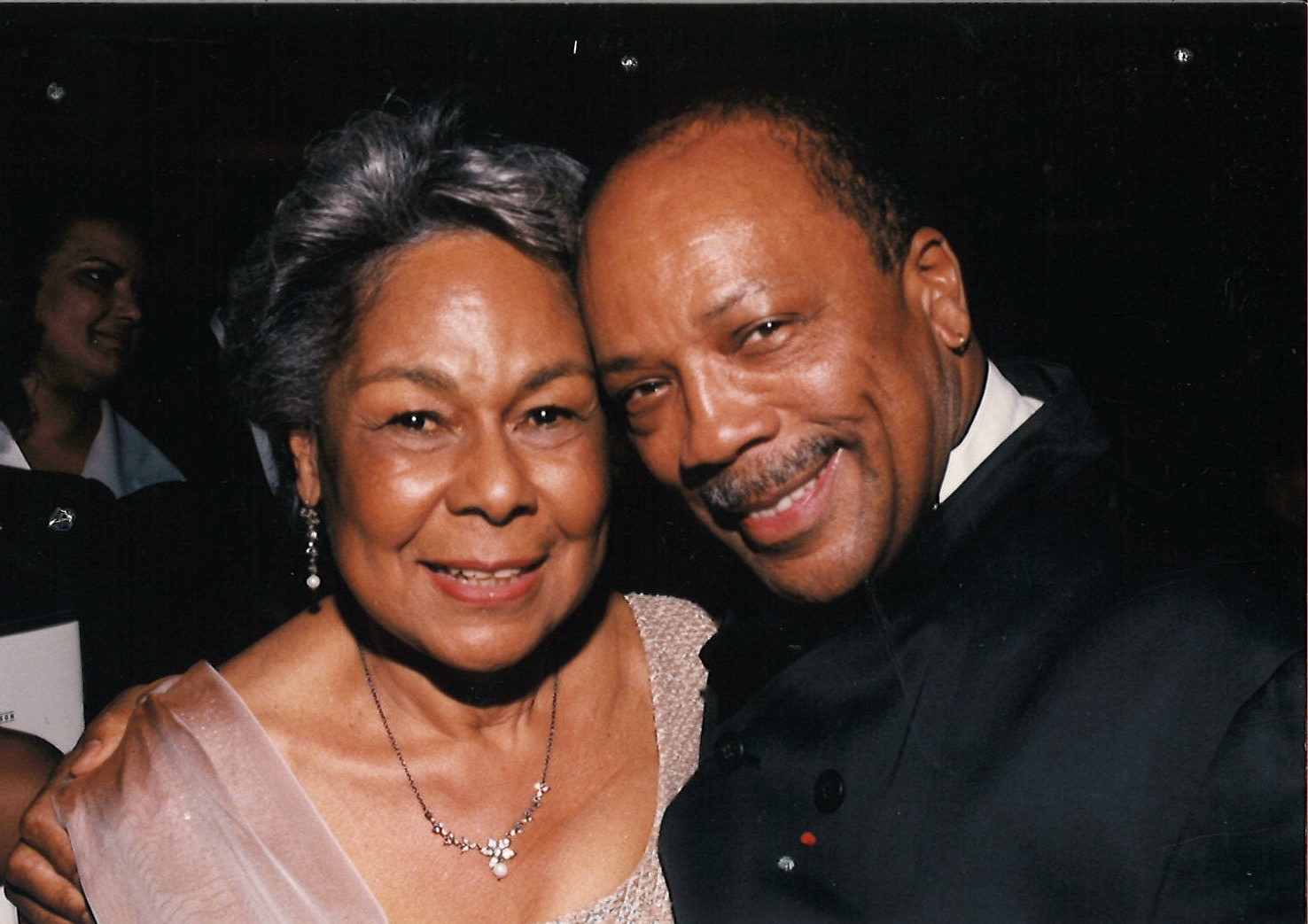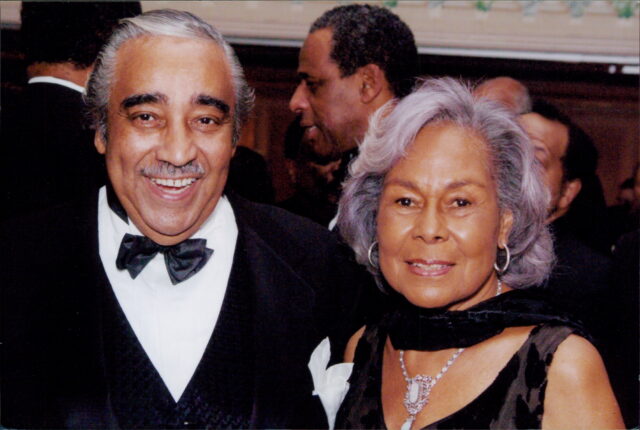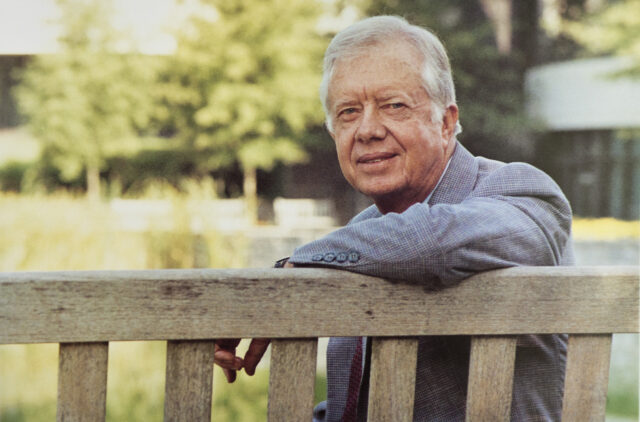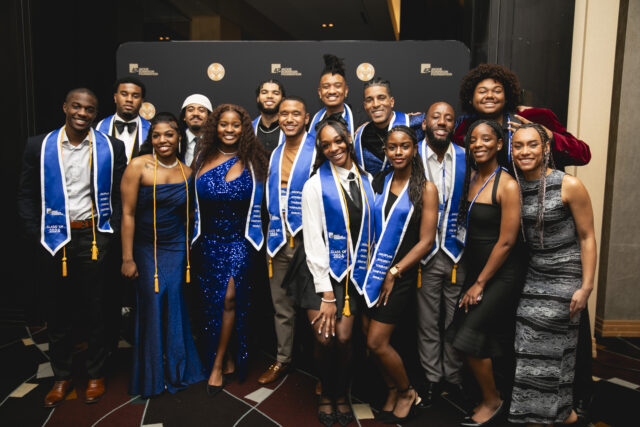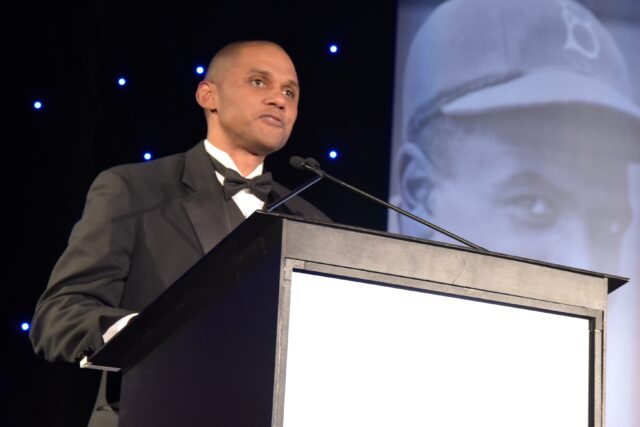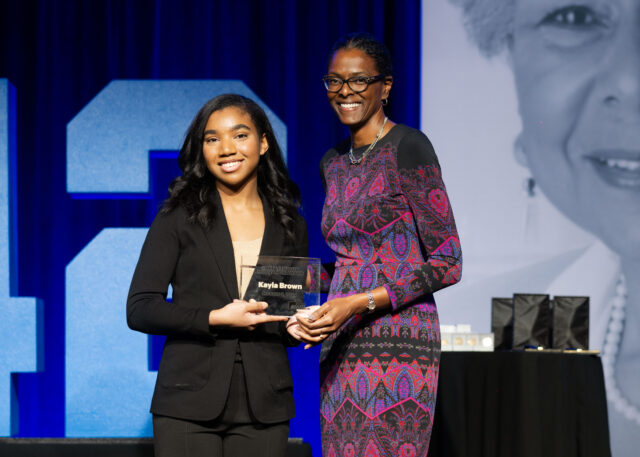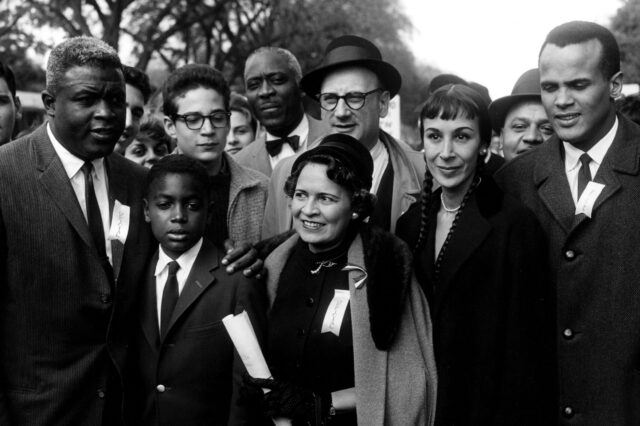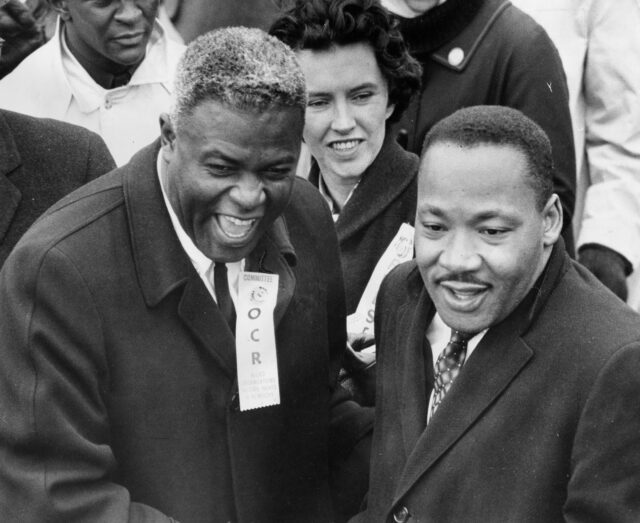The Jackie Robinson Foundation (JRF) mourns the passing of influential jazz and pop music legend, civil rights activist and beacon of possibility Quincy Jones on November 3.
Rising from a troubled childhood in gangsterland Chicago of the 1930s’ and ‘40s, Jones graduated from being a prodigy performing with the likes of Ray Charles and Lionel Hampton as a teenager to one of the most tremendous forces in the music industry. Throughout his continuously evolving career, Jones used his platform to champion Civil Rights and advocate for humanitarian causes.
Quincy Delight Jones Jr. was born in Chicago on March 14, 1933. His father, Quincy Sr., was a carpenter and semi-professional baseball player. His mother, Sarah, worked as a bank officer and apartment manager, and was a talented musician, graduating from Boston University.
Jones clearly inherited his mother’s musical ability. After stumbling upon a piano at a recreation center in Seattle, Wash., where his family moved when he was 11, he joined his school band and began learning to play a variety of brass, reed and percussion instruments. At 13, he received trumpet lessons from Clark Terry, who was in Seattle for a residency with Count Basie’s band. A year later Jones met 16-year-old Ray Charles, and the pair began working for a local band leader named Bumps Blackwell.
Two years after joining Lionel Hampton’s band as an 18-year-old trumpeter in 1951, Jones moved to New York where he worked as freelance arranger for Basie and a variety of band leaders including saxophonist James Moody.
Like Jackie Robinson, Quincy Jones would become a barrier breaker. In 1958 Jones signed with Mercury Records and in 1961 he advanced to the position of musical director, recruiting such established stars like Dizzy Gillespie, Gerry Mulligan and Shirley Horn to the label. He was promoted to vice-president in 1964, becoming the first Black person to hold an executive position at a major U.S. record company.
As Jones became more successful in the late 1950s, he was a driving force behind the rise of Black culture in popular art and music, affording higher levels of opportunity for future generations.
“I’ll always be political,” he told Sharp magazine in a 2018 interview. “I had great role models, man. I worked with Dr. King. I met him in 1963 at Jackie Robinson’s place.”
The meeting took place at the Robinson’s residence in North Stamford, CT in front of a crowd of about 1,500 people on Sept. 8, 1963, a week after Dr. King delivered his “I Have a Dream” speech on the Mall in Washington D.C. It was the first of what would become an annual “Afternoon of Jazz” fundraisers at the Robinson home.
Jackie and Rachel brought their children to Washington to be in attendance for Dr. King’s speech. The afternoon fundraiser at the Robinson residence was created to benefit the NAACP and other racial equality organizations.
Quincy Jones was among a lineup of performers including such luminaries as Sarah Vaughan, Ella Fitzgerald, Dizzy Gillespie, Errol Garner and Billy Taylor. For Jones, who was just 20 at the time, getting to meet Jackie Robinson and Dr. King in this capacity was one of the most exciting days in his burgeoning career.
Jones was still a struggling young artist at the time just trying to make ends meet, and was unaware of the magnitude of what Dr. King and the Robinsons were seeking to accomplish.
Jones and his band were introduced to Dr. King, who approached them off to the side of the stage to thank them after their performance.
“He came over and he had a black suit on and a tie and his coat over his arms,” Jones told Sharp. “I had a suit on too, and I had my band there. We were starving and we came to play a benefit for Jackie Robinson’s wife. But I heard his (King’s) message very loud and clear. We both had beers, and we talked about a lot of things.”
It was also the first meeting between Jones and Jackie Robinson.
“He [Robinson] was one of the very beginning transitional brothers who had broken the rules,” Jones said. “Hell, yes, I admired him for being the only black baseball player. But being the first meant he was the only one who could do that.”
Jones would become an early advocate of the Civil Rights movement, and the Southern Christian Leadership Conference’s Operation Breadbasket, to bolster economic development in inner cities. Years later he joined the board for the Rev. Jesse Jackson’s PUSH organization.
An industry titan known for his work with the likes of Count Basie’s orchestra, Frank Sinatra and Ella Fitzgerald, as well as his Academy Award winning movie scores, Jones’ compositions contributed to the soundtrack of the Black experience as it was portrayed in film. Jones composed the scores for “In the Heat of the Night” (1967), “Roots” (1977), and “The Color Purple” (1985). Jones oversaw arranging and conducting the performance and recording of “We are the World,” a fund-raising single record created by a supergroup of more than 40 pop music stars, including Diana Ross, Michael Jackson, and Stevie Wonder under the banner name USA for Africa to benefit famine victims.
In the 1980s, Jones devoted much of his time and energy to fighting HIV and AIDS and feeding hungry children around the world. Quincy Jones Listen Up! Foundation was designed to connect young people with music, culture and technology, and established a Quincy Jones professorship of African American Music at Harvard University.
Among his many accolades, Jones received honorary degrees from Harvard, Princeton, Juilliard, the New England Conservatory, the Berklee School of Music, as well as a National Medal of Arts and a National Endowment for the Arts Jazz Master fellowship.
In 1995, Jones was presented with the Academy of Motion Pictures and Sciences Jean Hersholt Humanitarian Award, recognizing an individual’s “outstanding contributions to humanitarian causes.”
In 2015, he was honored with the Thelonius Monk Institute’s Herbie Hancock Humanitarian Award presented to an “individual or institution that has made extraordinary contributions toward the betterment of humankind.”
“There is no truer humanitarian on the planet than Quincy ‘Q’ Jones,” said Herbie Hancock,” in his presentation of the award.
Jones is survived by a brother, Richard Jones; by two sisters, Margie Jay and Theresa Frank; and by seven children, Jolie, Kidada, Kenya, Martina, Rachel, Rashida and Quincy III.
The Jackie Robinson Foundation extends its deepest condolences to the Jones family and is proud to count the venerable Quincy Jones among its friends, allies and supporters.
